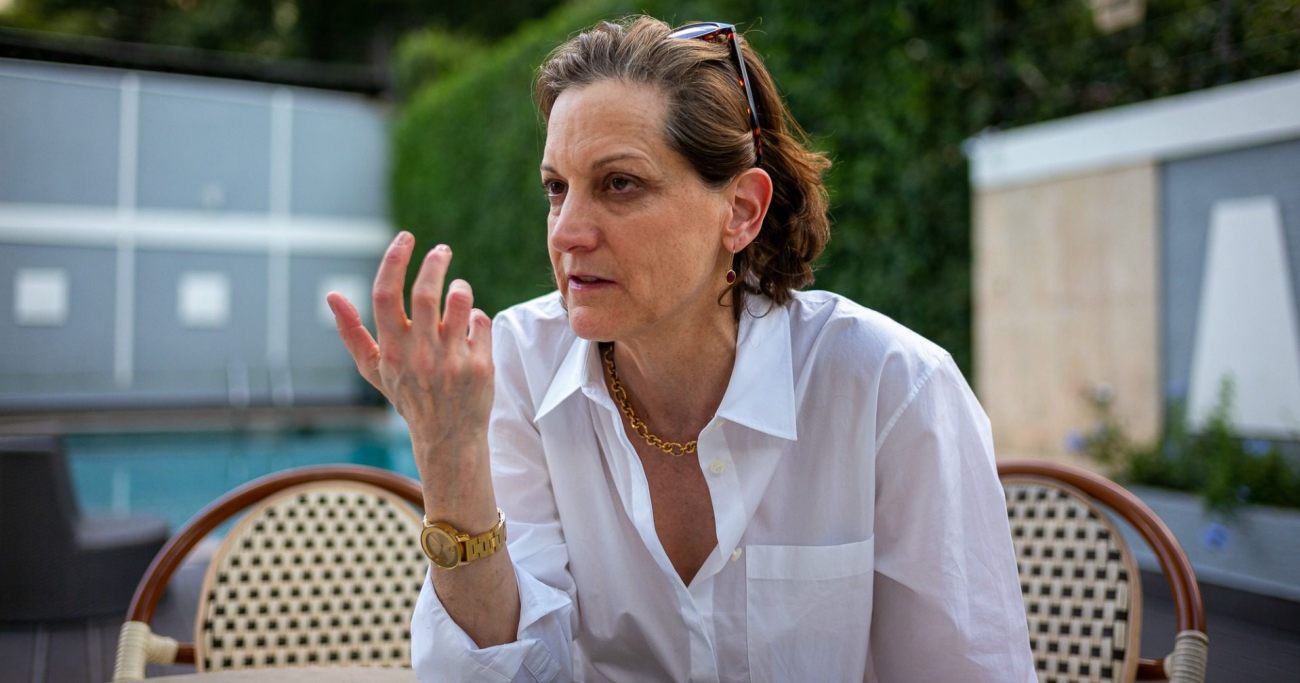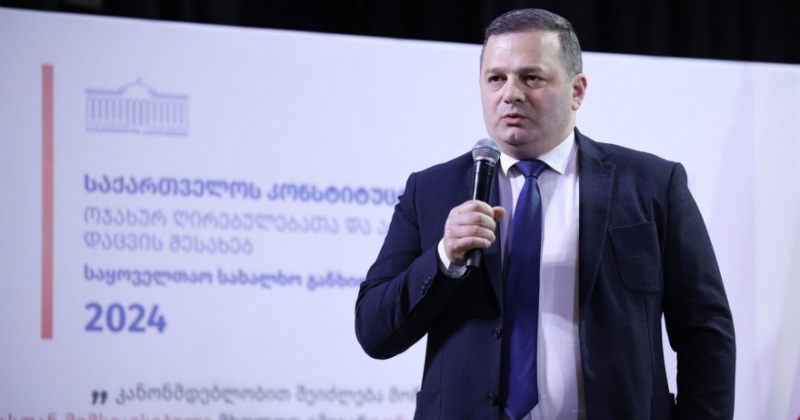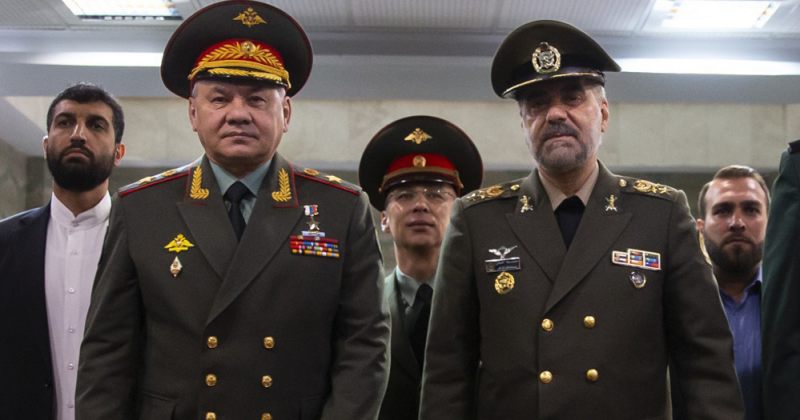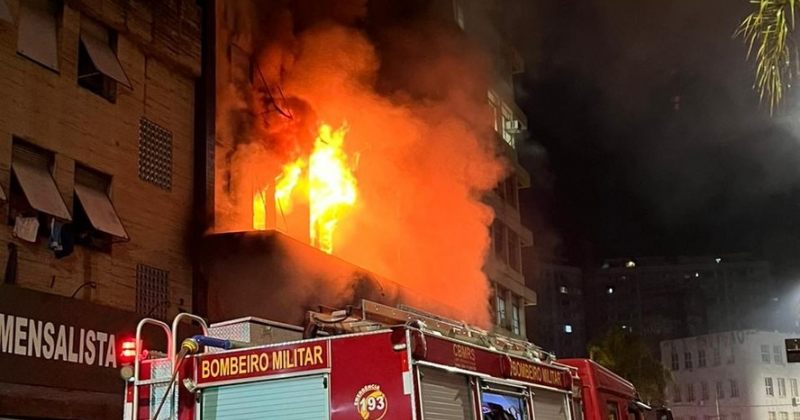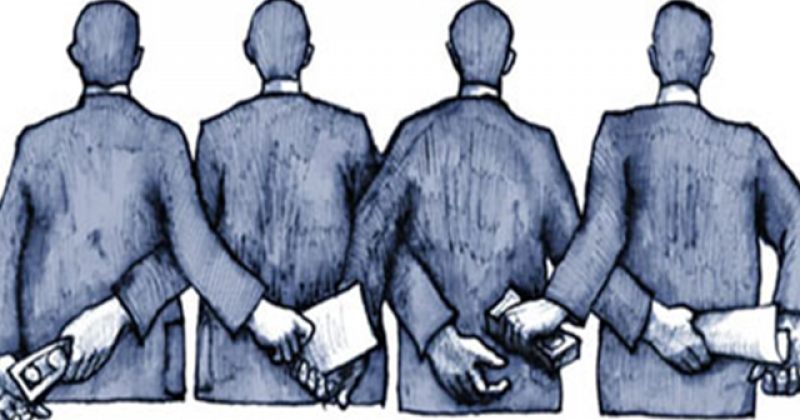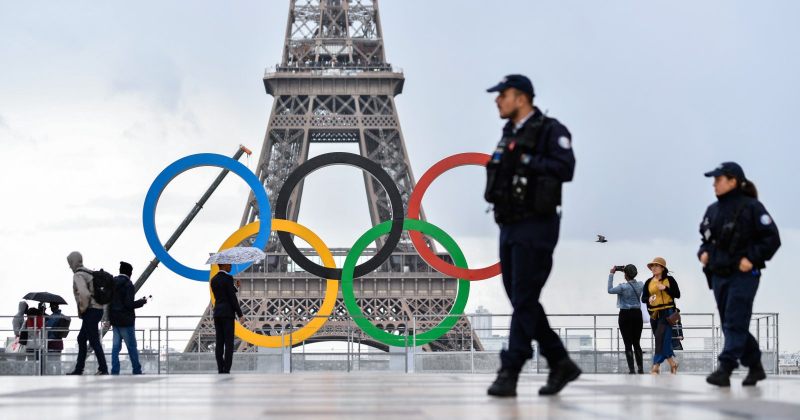How will the Russian annexation of Crimea affect international order and the attitudes of the West towards Russia? Tabula's editor-in-chief interviewed Pulitzer Prize-winning author Ann Applebaum about these issues when she visited Georgia in March to study the reforms implemented in Georgia over the past decade. Ann Applebaum has previously written for The Evening Standard, The Economist, The Spectator, and Slate magazine. She is currently a foreign affairs columnist for The Washington Post and was a member of the editorial board of that newspaper between 2002 and 2006. This interview with Ann Applebaum was aired on Tabula TV's talk show Teorema on 20 March.
Thank you for finding time in your busy schedule to talk to us. Let me start with a general question: What brings you to Georgia?
I work with a small political institute in London called the Legatum Institute. We do projects looking at different kind of political reform processes in different countries and we are looking at Georgia. We have a small group of people we brought here – one Serb, one British lawyer. And we are looking at how things have worked here over the period of the last 10 years.
The major topic in international politics today is Ukraine and Putin. What do you think Putin's ultimate goal is?
I don't have special insight into what Putin thinks. All I know is what he says and what he does. It's pretty clear to me now that he is interested, one way or another, in taking part of Ukraine and dismembering Ukraine. I do not know whether this is going to happen militarily or through negotiations. I know that he is proposing that Ukraine reform its constitution. His Foreign Minister, Lavrov, has made this proposal and has discussed with several people that Ukraine should become a federation; not just a federation, but a federation which pieces can break off from. And it would be my guess that Russia's ultimate goal is to remove parts of Ukraine.
Do you think it will stop at Ukraine or might Putin go beyond that?
I do not know. That depends on events. I do not think that he is now in a position to go beyond that. But I think that is his interest. Many other things may happen, but it depends on what the Ukrainians do.
Reading your articles, I have concluded that you view Putin's actions as a setback for Europe.
I think Putin's actions have done couple of things: they've made us change our assumptions about post-Cold War Europe. One of the things that was considered a great success after the break up of the Soviet Union was that it did not, with some exceptions, break out into terrible warfare, like in Yugoslavia – with every republic fighting every republic. The borders were agreed. I think the annexation of Crimea, which was clearly a political response to events in Kiev, and is something that is happening much closer to the borders of Western Europe than those other events in Georgia and Chechnya, has really made people feel differently about Russia. I think it is a wake up call for the Western world about how we think about that part of Europe and how we think about Russia. The way the West has thought about Russia up until now is that it is a kind of flawed Western country; it's a country that should be Western; it's similar to us but has Tolstoy and Dostoevsky; and if we simply treat the Russians like junior partners, then eventually they will join the West, they will be in the G8, they will be in the Council of Europe and we will eventually integrate them. I think the events of last week will make people think differently. I do not think we will think of Russia like that any more.
Do you think the Western leadership has the potential to reverse Russia's actions?
It will not happen quickly. No.
The reactions of financial markets to the sanctions over Crimea were quite remarkable. Actually, the ruble and shares on the Moscow stock market went up.
The sanctions, I agree, were almost silly. They were directed at a tiny group of people, most of them not very important people. Although, I will say that the sanctions did mark a big change in Western, and particularly in European, thinking. If you told me six months ago that Europeans would put sanctions on Russia, I would not have believed it. The fact is that this did represent a change. I know to you it does not seem to be very much, that it is too late, that it is not enough and so on, but there has been a shift. I think we will see further changes as the weeks go by. It takes a long time for Western political institutions to reorient themselves and for people to start thinking differently. I know it is disappointing and annoying, but I do think they are making movement, and that is new.
You and many others believe that the Western financial elite has become very dependent on the money of oligarchs, including that of Russian oligarchs. Do you think this dependence is somehow reversible?
I think it is a fact that affects the way people think. Russia is not Iran; Russia is well integrated into the West, I mean with Russian money in Western banks and Western investments in Russia. As I have said, we have been operating for 20 years on the assumption that Russia would sooner or later become a kind of Western country that we could have a normal relationship with. I think that will change. I already know that people will think twice about investing in Russia, I think that even the bigger relationships – the oil and gas relationships, big financial relationships – are going to be reexamined from the security point of view, which was not done before.
Many say that the West cannot punish Russia without inflicting damage to its own interests. What can the damage inflicted be if Russia continues to do what it strives for?
First of all, Russia is not that important to the West financially. There are few key industries where they matter, and there is the gas issue that matters. But the Russian economy is not so big. It is not crucial to anybody; it is not critical for anybody. There is Russian influence on financial markets, but not control. Given the size of Russia, its economic influence is actually fairly weak. I do not remember the exact figures, but I am certain, for example, that German exports to Poland are bigger that German exports to Russia. Central Europe as a whole is much more important economically to Germany, to France or to England than Russia is. So, it is not so important.
US Secretary of State Kerry has complained that Russia is playing by 19th century rules, whereas Obama and Kerry speak about applying 21st century methods in response. How can Russia be treated with 21st century rules?
There has been a theory in Western foreign policy thinking for the last two decades that the days of great power politics are over and that soft power is more important than hard power. This is the moment when a lot will be rethought and people will go back, maybe not to the 19th century, but to the 20th century. There is a lot of rethinking that will have to take place over the next months and years about where NATO forces are situated and how we will treat Russian investments in the West – whether we understand that to be private money or whether we understand it to be alms of the state. I think that will all be rethought. It is really Russia that has changed the way we think.
You mentioned NATO, how is this recent crisis going to affect the transatlantic cooperation that has been in crisis since the collapse of the Soviet Union?
It has been in crisis because it has not had an enemy. What NATO is for exactly, we do not know. It was constructed for the Cold War. Later NATO expansion was really a means of spreading Western institutions and values in Eastern Europe. Actually, there are still no NATO bases or NATO soldiers in the new NATO countries – I mean not many, only tiny numbers. The expansion of NATO has never led to a reorientation of NATO military doctrine. I think that will now happen.
According to Freedom House, democracy building in the world has become stagnated or has deteriorated. Obama's government has been criticized a lot for turning a blind eye to human rights violations around the world. Do you think that people in the countries who are violated, like Georgia, Azerbaijan, Turkey, can look for assistance from the United States?
It has always been a mistake to imagine that the United States is so powerful that they can fix the problems of other countries. The Rose Revolution, the Orange Revolution, the recent Ukrainian revolution – these were revolutions that succeeded because local people wanted them to happen. It is true of 1989 as well, actually. The United States has never actually been very good at teaching or exporting democracy. It can use rhetoric, it can use language, and it can say we think this or we do not accept that, these are our standards. People imagine that it has more power than it really has. Reformers who want to change things in Turkey would be better off working in Turkey rather than expecting the United States to come to their aid, and the same goes for this part of the world as well.
What about the Reagan era...
Even in the Reagan era, Reagan offered language about democracy and freedom. I guess during the Solidarity period in Poland there were small amounts of money which the Poles themselves knew how to use and that they used to build the underground press and so on. But Reagan never invaded Poland or offered military help to Poland. He was not the force that created the Solidarity movement. The Solidarity movement was created from inside Poland. It is a mistake to imagine retrospectively that those big changes that happened in the 1980s and early 1990s were somehow brought about by the Americans. If you really look at the history of that period, they have come from inside the region more than anything else.
Here is a question that bothers me a lot. My daughter studies in France, in high school. The other day she called to ask me about my thoughts regarding the Cold War. This question was apparently raised in her class and they had a debate about who should be blamed for the Cold War.
My son has the same in his class.
What worries me is that nobody is asking questions about who should be blamed for World War II; nobody is going to raise the question of whether Hitler was guilty of starting the war or not. What shocked me is that one-third of her class thought the Cold War was the United States' fault, with Stalin being put in a situation where the Soviet Union had to react in that way. What's wrong with these people?
My last book was called Iron Curtain, it is the history of the Sovietization of Eastern Europe. It is about Poland, Hungary, East Germany. It starts from 1944-45 and explains how from the very moment the Red Army arrived in countries, as soon as they crossed the border, they began the process of creating communism everywhere they went. So you do not have to tell me who started the Cold War.
But very often people remember history they want to remember it. French anti-Americanism is very important to the French identity. They feel overwhelming pressure from the English language. These kinds of arguments do not come from a knowledge of historical facts. They come from their own politics. But I agree, it is absurd that we should even be having this conversation now. It is a bigger problem in France than it is in Britain or America.
Do you think it is anti-Americanism that is driving such a perception of history?
Yes, I think this is anti-Americanism to some extent. People dislike the Cold War. The Cold War was uncomfortable and scary and there was the possibility of nuclear war in Europe. People are really resisting going back to it. People do not want to have a military conflict in Europe ever again. Part of what Russia just did is that it just removed some of this resistance. The idea that we do not want a new Cold War, we do not want arguments with Russia – this is going to be a more difficult argument. If we have this kind of pressure from Russia, then we will change back again.
Do you think from the perspective of what is now happening in Ukraine, the Western reaction was adequate in the Russia-Georgia war of August 2008?
No, the Western reaction was not adequate. Georgia was seen as a kind of one-off. This is just one country and it is a particular problem that Putin has with the Georgian government, it is not typical of the region. So, it was treated as an exception. I think you are right; it was not taken seriously by the West, it was not seen as an indication of how Russia will behave in other places.
So, it turns out that open warfare was actually the only thing that attracted attention of the West to Georgia back then. Because what is happening now in Ukraine – occupation without open warfare – had been happening in Georgia for many years...
Yes, I think that is fair. The moment when there is military intervention is when people wake up and notice that something is happening. I think that's probably true. Again, I am not saying that that was clever, but it is probably what is accurate. Much of the West's reaction now will depend on what Ukraine does, how Ukraine feels about this annexation. Our reaction will be tempered a lot by how Ukraine reacts.
Do you think that Georgia in 2008 and Ukraine in 2014 will be a kind of a lesson for those who were skeptical and were opposed to the integration of these countries into European structures and NATO just to appease Russia?
I will be careful here because I am speaking neutrally. This is my opinion as an observer and does not reflect my personal wishes. I think one of the reasons why people were afraid of having Ukraine and Georgia join NATO was because we were afraid we were not in a position to militarily defend these countries. It was not so much that we wanted to appease Russia. Ukraine is a huge country and if NATO offers it a military guarantee, is that something we can really fulfill? I think people felt that it was not. And, in the case of Georgia, Georgia's geography and geographical position makes us doubt whether we could defend Georgia. And I think that is part of the reason. I am not sure that was so much about appeasement. I think it was more about what NATO is capable of doing.
But, if we recall the NATO summit in Bucharest in 2008, the discussion there was about offering a Membership Action Plan (MAP), this alone does not oblige NATO member states to enact Article 5 to defend the territory.... They were reluctant to even offer the MAP.
Maybe rightly so. But why offer a MAP if you are not going to offer membership?
Why then state in the Bucharest summit resolution that Georgia and Ukraine will become NATO members if you are not going to permit this?
I am not justifying this; I do not want to be arguing in favor of American or German policy. If you are asking about what the attitude of the West is, the attitude of the West is that these are places we cannot realistically defend. That is how people think.
Do you think this attitude might change?
No, I think it might become a deeper feeling. Are we in a position to invade Crimea and push Russia out? No, militarily. Do we want to offer NATO membership to Ukraine? No. That is my guess. I am not saying that is good, but I am saying that's how people think.

